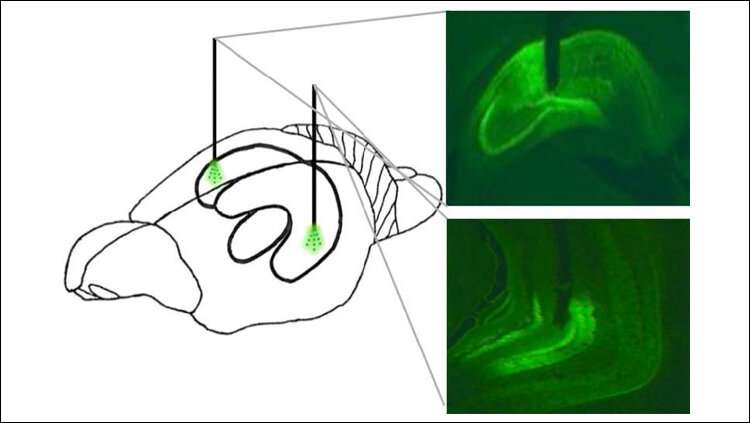Depiction of virus expression and ferrule placement. A, Depiction of ferrule location in dHC and vHC of the same rat. B, Representative image of robust eArchT3.0-eYFP expression and ferrule location in dHC and in C, vHC. Credit: Hannapel et al., eNeuro (2019)
Researchers have identified cells in the brains of male rats that appear to control future food intake by preserving memories of past meals. The study, published in eNeuro, lends support to the idea of boosting meal memories as a strategy for managing overeating.
Preliminary research suggests a role for two areas of the hippocampus in regulating future eating. Reilly Hannapel, Marise Parent, and colleagues found that inhibiting the activity of pyramidal neurons in the dorsal or ventral hippocampus during or after, but not before, a meal caused rats to start their next meal sooner.
Interrupting the activity of these cells after the first meal additionally caused rats to consume more food during their next meal even though the activity of these cells was no longer disrupted.
The hippocampal cells manipulated in this study may help consolidate memory of the previous meal, which could serve as a satiation signal that outlasts appetite-regulating hormones to inform future eating behavior.
By establishing a mechanism by which the hippocampus regulates eating, these findings could help to explain the link between hippocampal dysfunction and obesity.
More information: Postmeal optogenetic inhibition of dorsal or ventral hippocampal pyramidal neurons increases future intake, eNeuro, DOI: www.eneuro.org/lookup/doi/10.1 … /ENEURO.0457-18.2018
Provided by Society for Neuroscience





















